In Praise of the IB – And Why the MYP Gives it The Edge. A Guide for Parents.
Introduction by the Editor: Why the IB MYP is the Powerhouse Master Stroke in an IB Education for students.
In the following exclusive guide for parents, written exclusively for SchoolsCompared, Simon Herbert, Head of School and Chief Executive Officer of GEMS International School Al Khail, talks through his absolute conviction that the International Baccalaureate Is the world’s leading qualification for children.
In a rare twist, however, Mr Herbert says that his belief is based, in no small part, on the extraordinarily impactful and creditable IB Middle Years Programme, something he sees as wrongly and unaccountably dismissed or, as regretfully, treated as an optional also-ran, by far too many… including those who also, like him, otherwise, celebrate the IB.
For Mr Herbert, the IB MYP should not be treated as some second rate cousin to the “”real”” IB that supposedly only takes place after the age of 16 as students prepare for either the Diploma or Career-related Programme. Far from it, the IB MYP, for Mr Herbert, is centrifugal to the IB – and no other curriculum in the world can match its extraordinary and outstanding impacts on each child’s development, this both academically and across every aspect of their whole child education.
In a powerfully argued case, Mr Herbert takes no prisoners in questioning ‘mix and match’ approaches to the IB, one that has seen some schools replacing the IB MYP with a British education for students to 16 before, very late in the day, for Mr Herbert, switching students, to an IB programme for which far too many students have been imperfectly prepared.
The following article follows a wide-ranging series of debates on SchoolsCompared aiming to provide parents with the spectrum of views on the merits of alternative curriculum pathways for students.
Click here to read “Right to Reply: A Levels versus IB qualifications.” By Matthew Farthing. Principal, Nord Anglia School Dubai.
Why the IB Middle Years Programme is the key to student success
By Simon Herbert, Head of School/CEO, GEMS International School – Al Khail
The International Baccalaureate is the fastest growing curriculum in the world. Between 2016 and 2020, the number of IB programmes offered worldwide increased by 33%, and while the UAE is slightly behind the curve compared to the US, Asia and Europe, parents are catching up, reflected in the IB now being the fastest growing curriculum in Dubai.
| Year | Primary Years Programme | Middle years Programme | Diploma Programme | Career Certificate |
| 2016 | 1,299 | 1,024 | 2,873 | 119 |
| 2017 | 1,438 | 1,142 | 3,045 | 162 |
| 2018 | 1,589 | 1,242 | 3,211 | 201 |
| 2019 | 1,751 | 1,351 | 3,388 | 247 |
| 2020 | 1,916 | 1,472 | 3,578 | 282 |
Having led schools that follow the British, French, IB and ‘mixed’ curricula (British followed by a final two years of IB), I am convinced that now is the right time to be studying in an all-through IB school. That means following the Primary Years Programme (PYP) and Middle Years Programme (MYP), followed by the Diploma Programme (DP) or Career-related Programme (CP).
Although often misunderstood, the MYP is the key to success for all students because it provides the link between the PYP and DP/CP, covering the crucial years from Grade 6 to 10. Nevertheless, parents often ask, why choose the MYP when you can select from a variety of other curricula in Dubai and then return to the IB at a later stage?
This type of picking and choosing, and even school switching, is not uncommon in the UAE, where it’s clear that the IB is less understood than in other parts of the world. In Asia, Europe and the US, for example, parents are desperately seeking out all-through IB schools for their philosophy of learning and learner profile of knowledge and skills for life.
I recall a particularly interesting conversation with an IB Diploma Grade 12 (Year 13) student at my school. He had just been offered a place at the prestigious École Supérieure de Parfum in Paris and said he could not have managed this if he hadn’t taken the MYP before the DP. I asked him why and he pointed to his confidence during his interview, which he attributed to the many opportunities afforded by the MPY to present and show independent thinking and self-management.
The obvious response is that an excellent international programme is, of course, the best preparation for the next international programme, thereby preparing students for entry to universities around the world without the politicisation of a ‘national curriculum’.
The MYP is grounded in the development of the learner, whose knowledge and understanding are strengthened as a result. When memorisation and high-stakes assessment is the sole focus, the learner and learning itself are often missed. With the MYP, however, the learner and learning take centre stage; rigour and robust pedagogy are still there, but the focus is on the students.
There are, according to the IB, 10 reasons why the MYP encourages students to become creative, critical and reflective learners. The first reason focuses on lifelong learning – specifically ‘how to learn’ using communication, research, self-management, collaboration and critical thinking skills. To me as an educator, this is absolutely crucial, and it’s refreshing to follow a curriculum founded on an educational philosophy in this way.
Over the past year I have seen more and more parents from France and the UK consider the IB, seeking the international mindedness of the MYP for their children. I am convinced that part of the IB’s increasing popularity is due to the somewhat stale, uninspiring alternatives.
Many French families I have spoken to, for instance, are discouraged by the restrictive and dry approach of their country’s curriculum, which is one of the most traditional systems in the world. Ironically, in the land of égalité, the route into upper management or government positions comes from a very small selection of university pathways. There is also a considerable narrowing of opportunity from an early age.
As for the UK’s GCSE and iGCSE qualifications – once so revered by parents worldwide – it is worth noting the words of Dr Mary Bousted, Joint General Secretary of the National Education Union (NEU). During the Union’s conference in April this year, she said: ‘Today, the Union has set out the measures government should take to learn from the failures of the past and to open up our narrow, test-driven and restrictive education system so that it benefits all learners, from the early years to adulthood. Moving with the grain of educational opinion, the Union is calling for fundamental reform of 16+ and 18+ examinations.’
Perhaps this reform will happen. With England topping the league table of rote-learning (the process of memorising information based on repetition), and with students in English classrooms spending more time preparing for tests than actually learning, it certainly needs to!
As a Brit myself (and an A-level graduate), I am embarrassed that the UK government made the study of a modern foreign language optional from the age of 14. When earlier this year there were calls in the UK parliament for a baccalaureate-style post-16 system, they sadly did not go as far as requiring a foreign language to be compulsory. This, for me, once again indicates a lack of international mindedness.
Unlike many national curricula, the MYP affords teachers and students the freedom to pursue lines of learning aimed at providing the opportunity to create, enhance workplace skills, think critically, and link with other subjects and the real world.
Why study and memorise the Battle of Hastings, for example, when you can dive into ‘Conflict through the Ages’ and present your thoughts on your choice of global conflicts? Why restrict students’ creative thinking and learning to mere memorisation and regurgitation in narrowly discrete subjects, when you can adopt transdisciplinary links, metacognitive (‘learning to learn’) skills and curiosity-driven, collaborative real-world learning?
The breadth and depth of the MYP provides preparation for the demands of the IB Diploma. It equips students with the research skills, essay writing guidance, the Personal Project and the metacognition they need to tackle the ‘Theory of Knowledge’ or a 4,000-word Extended Essay.
Two Grade 12 DP students at my school made the point perfectly when they said, ‘the cumulative nature of the MYP, with its build-up of research skills, reflection, public speaking in presentations, critical and creative thinking requirements, and higher levels of synthesis and evaluation found at the top of Bloom’s taxonomy, gave us far more than the memorisation and regurgitation of information just to pass tests.’ I could not have put it better myself.
Such glowing words would be music to any head of school’s ears. Yet they also prompt a reassessment of the roles school culture and curriculum play in building confidence in students. Can one curriculum, more than another, instil an ability to think on your feet, to make links between subjects and to confer a confident approach to an interview?
The role of the curriculum is surely to encourage curiosity, collaboration, self-reflection, self-management, risk-taking, creativity and, above all, a love of learning. Students are not vessels to be filled with facts, as was the view not so long ago. On the contrary, via the MYP, students learn to question, debate, evaluate and create. They still have access to facts, but consider them from all angles.
What better time, therefore, to begin to take risks in learning, than in the inquisitive teenage years? How stultifying it must be to study a narrow curriculum of facts alone. The MYP, with its transdisciplinary and globally-minded approach, allows students to take risks, but within safe parameters. This is how students can stretch their learning and learn to keep trying.
As scholastic theologian Thomas Aquinas wrote in his Summa Theologica (1485), ‘If the highest aim of a captain were to preserve his ship, he would keep it in port forever’.
With this in mind, surely, the MYP must be seen as allowing students to have a taste of the high seas before they embark on ocean sailing in the DP or CP.
About an Outstanding Education at GEMS International School Al Khail
© SchoolsCompared.com. 2021.
All rights of the author, Simon Herbert, and GEMS Education strictly reserved. 2021.
Notes for parents:
Read our independent review for parents of GEMS International School Al Khail.
Visit the official GEMS International School Al Khail web site.
More on the Middle Years Programme can be found on the official IB web site.











































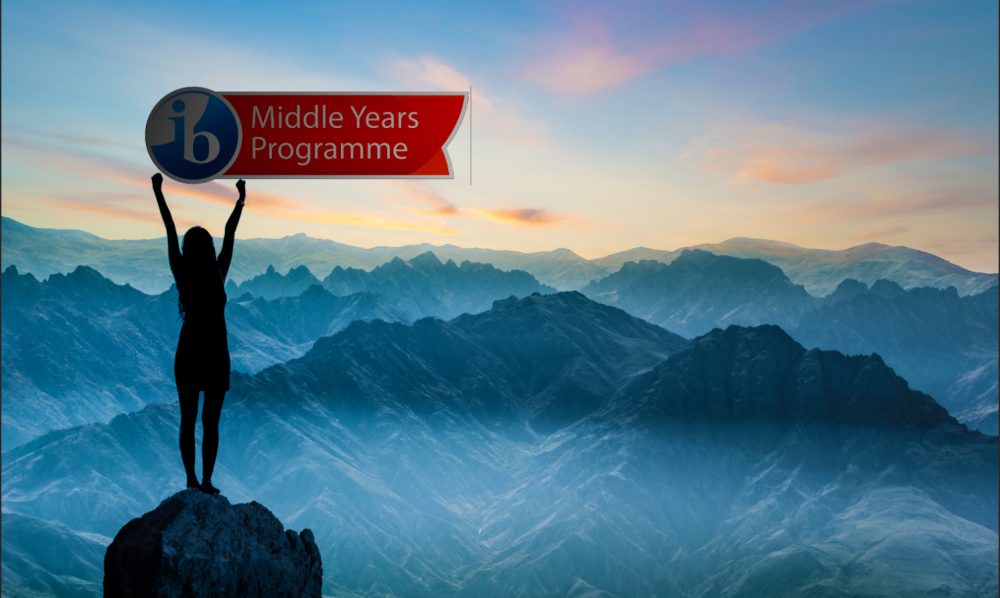

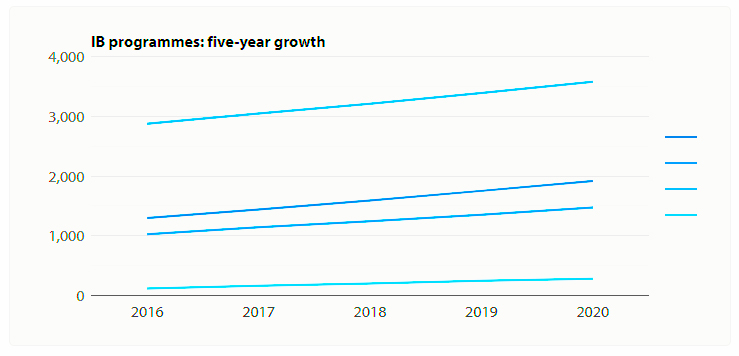
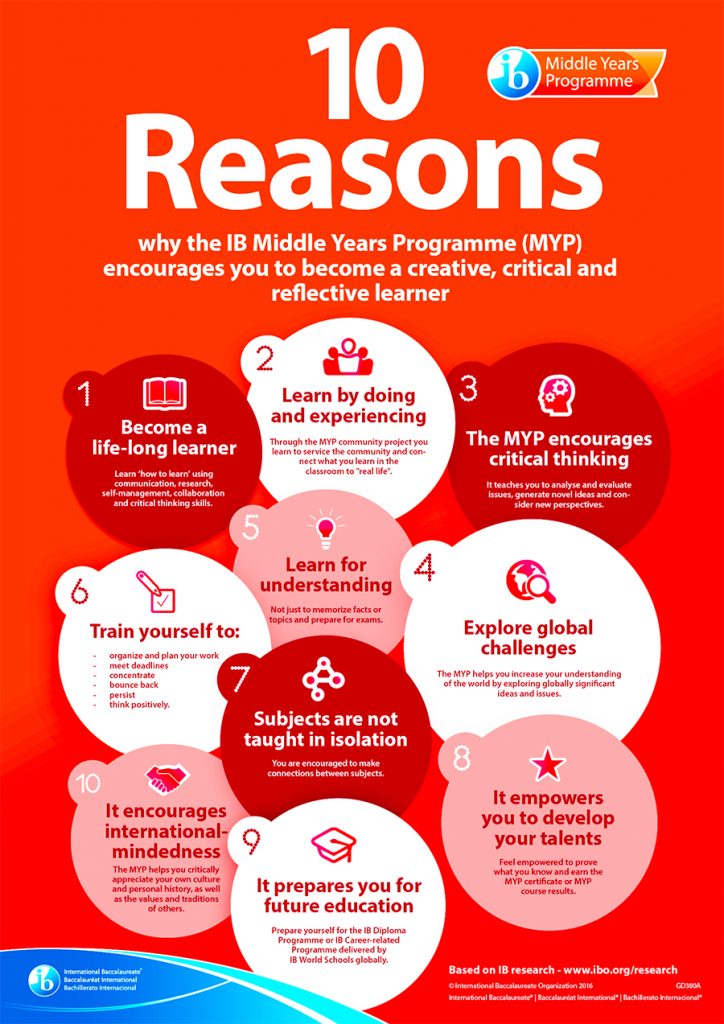


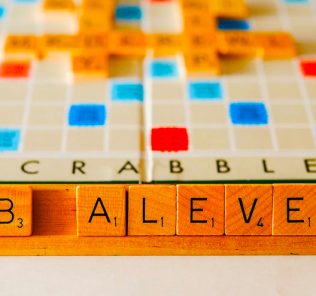
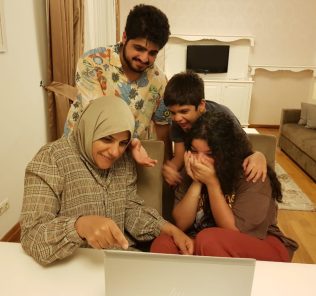
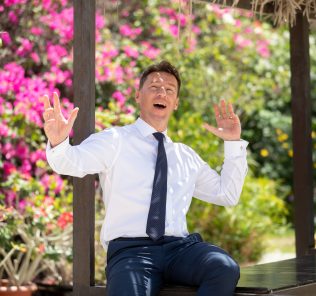























Leave a Response